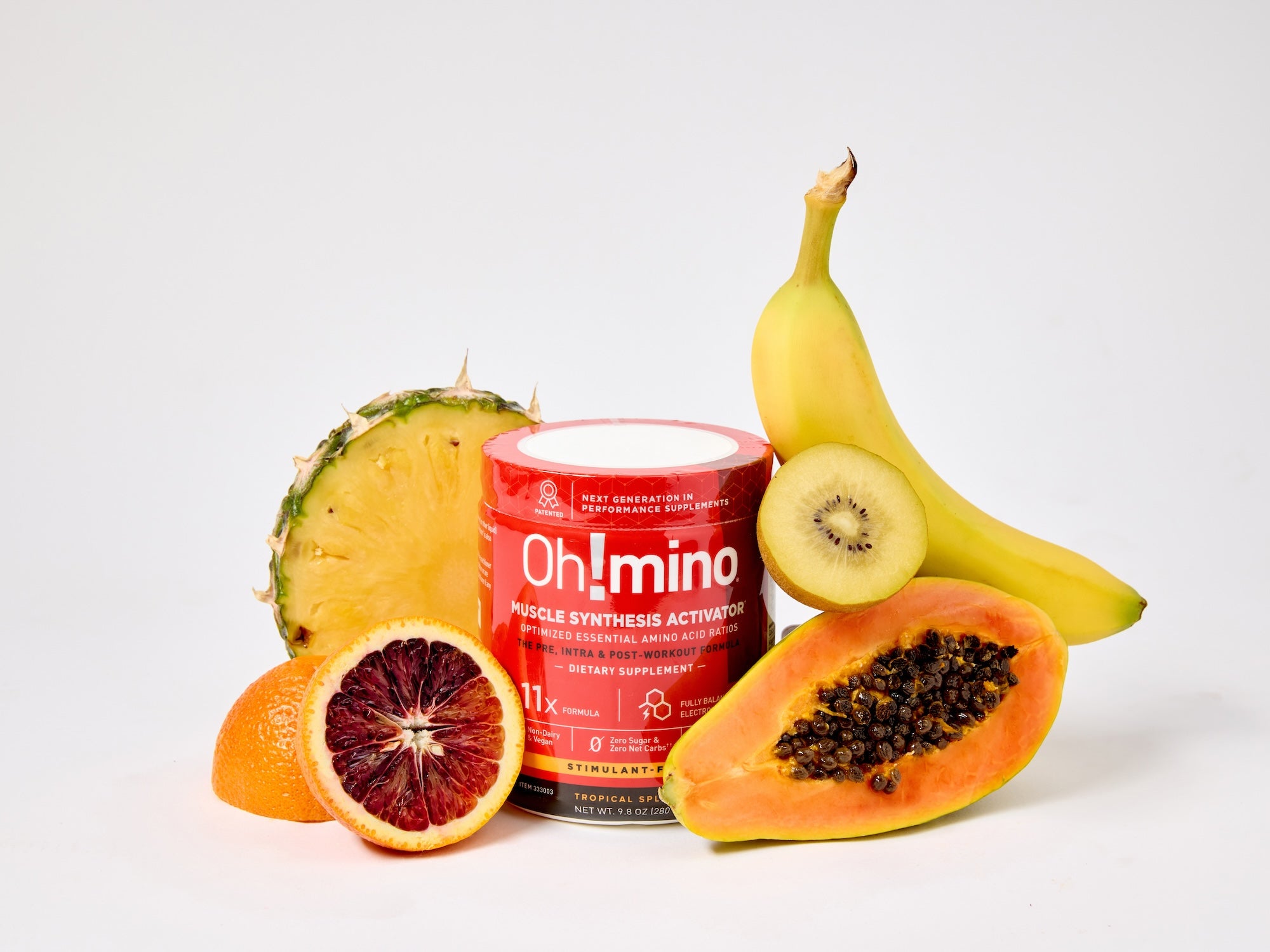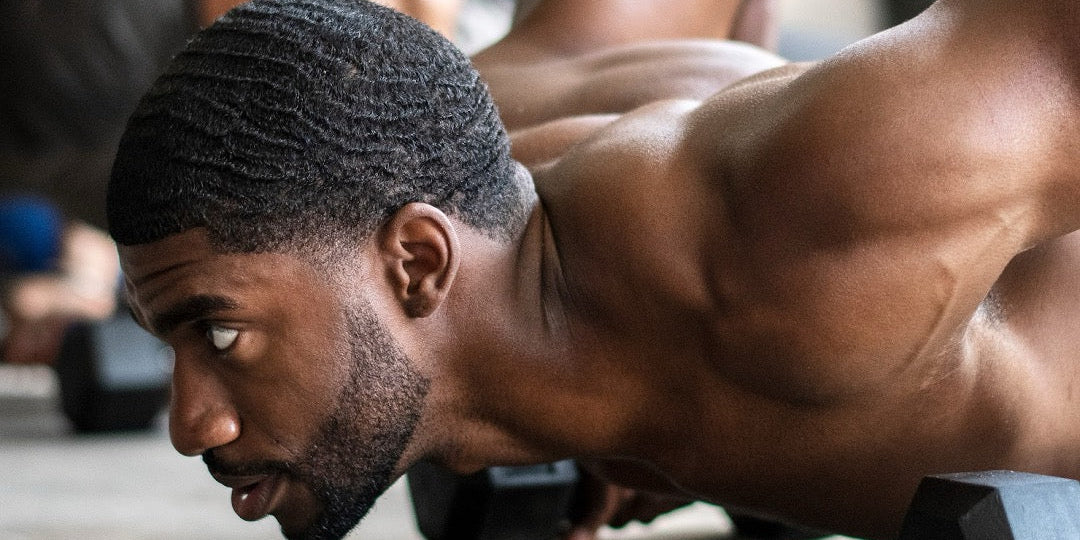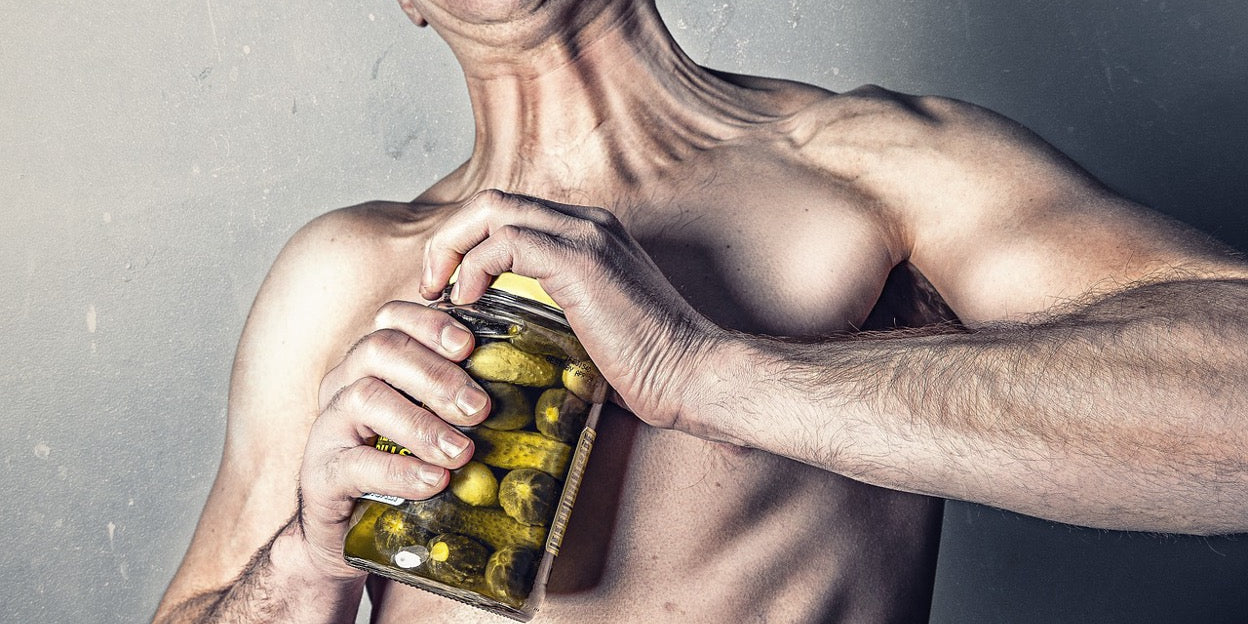Key Takeaways
-
Decaf coffee doesn’t dehydrate you; its caffeine content is too low to have any significant diuretic effect.
-
Multiple clinical studies comparing decaf and regular coffee to water have shown that both contribute to hydration.
-
Caffeine only affects hydration at high doses, especially in non-habitual users. For regular drinkers, its impact is minimal and short-lived.
-
Oh!mino Muscle Synthesis Activator goes beyond hydration, delivering 9 essential amino acids, key electrolytes, and a patented formula proven to enhance muscle growth, endurance, and recovery, with or without caffeine.
Does Decaf Coffee Cause Dehydration?
No, decaf coffee does not dehydrate you. Despite the long-standing myth that all coffee has a drying effect on the body, scientific research consistently shows that decaf poses no real threat to your hydration levels.
Decaf coffee contains only a fraction of the caffeine found in regular coffee, typically around 2 to 5 milligrams per 8 oz cup, compared to 70–140 mg in a standard brew. And since caffeine is the compound responsible for any potential diuretic effect, decaf’s impact on fluid balance is virtually nonexistent.
In fact, both regular and decaf coffee contribute to your total fluid intake. A landmark 2014 study examined the effects of moderate coffee consumption on hydration and found no significant difference between drinking coffee and drinking water when it came to key hydration markers like urine output.
So let’s be clear: decaf coffee doesn’t dehydrate you; rather, it actively helps keep you hydrated.
|
Oh!mino®: Elevate Your Performance. Accelerate Your Recovery. Science-Backed Superiority for Every Fitness Journey Power Your Goals with Proven Results:
The Oh!minoI® Advantage: ✓ Adaptogens boosts endurance and muscle fuel by 373% Choose Your Perfect Formula: Available in refreshing Tropical Slash or Berry Blast flavors, with stimulant-free or caffeinated options. Prefer capsules? We've got you covered with the same powerful formula. Take before, during, or after training—one solution for your entire workout. |
Understanding Decaf Coffee
Decaf coffee isn’t completely caffeine-free, but it contains significantly less caffeine than its regular counterpart. On average, an 8-oz cup of decaf has about 2–5 mg of caffeine, compared to 70–140 mg in regular coffee. It's created by removing caffeine from green coffee beans using methods like water, solvents, or carbon dioxide.
People choose decaf for different reasons: to avoid the jitters, to reduce stimulant intake later in the day, or because they think it’s better for hydration. But how much truth is there in that?
Staying active? Decaf keeps you hydrated, but it won’t replace lost electrolytes or support muscle repair after intense training.
Caffeine and Dehydration: What the Science Says
Caffeine is often called a diuretic, but the truth is more nuanced. Yes, caffeine can increase urine output, but only in large doses or in people who aren’t used to it. For most individuals, especially those who consume caffeine regularly, this effect is minimal and short-lived.
Several high-quality studies reinforce this:
-
A study in the International Journal of Sport Nutrition and Exercise Metabolism found that even high doses of caffeine (up to 6 mg/kg/day) had no effect on hydration or electrolyte balance. All key markers like urine output, sodium levels, and plasma protein stayed within normal ranges.
-
Research in the Journal of the American College of Nutrition showed that caffeinated drinks hydrate just like water. No significant changes were seen in body weight, urine chemistry, or blood markers across various beverage types.
-
A review in the Journal of Human Nutrition and Dietetics confirmed that caffeine’s diuretic effect is mild and temporary, especially in regular consumers. Standard servings of tea, coffee, or soda do not cause dehydration.
The takeaway is that you’d have to drink large volumes of strong coffee—fast, and without being used to caffeine—for it to have any dehydrating effect. And for decaf, which contains only a fraction of that caffeine, the impact on hydration is virtually nonexistent.
How Much Decaf Is Too Much?
There’s no hard limit for decaf, but moderation still matters. If you're drinking more than 5–6 cups a day, consider how that might affect your sleep, digestion, and mineral absorption, even if caffeine content is low. For most people, 2–3 cups daily is totally safe and won’t interfere with hydration.
Love your coffee, but keep it in check. Even decaf can throw off your rhythm if you go overboard.
Hydration Comparison: Decaf vs. Other Popular Drinks
|
Beverage |
Caffeine Content (per cup) |
Key Benefits |
What It Lacks |
Hydration Score |
|
Water |
0 mg |
Fast absorption, essential for all functions |
No electrolytes or recovery support |
5/5 |
|
Green Tea |
~25–35 mg |
Antioxidants, low caffeine, mild hydration boost |
No amino acids or electrolyte replenishment |
4/5 |
|
Decaf Coffee |
~2–5 mg |
Contributes to fluid intake, low stimulant |
No muscle or mineral support |
4/5 |
|
Electrolyte Drinks |
0–50 mg (varies) |
Replenishes sodium, potassium, hydration support |
Often high in sugar or artificial ingredients |
4/5 |
|
Oh!mino Muscle Synthesis Activator |
0 mg or 100 mg (your choice) |
Electrolytes, 9 EAAs, adaptogens, zero sugar/carbs |
— |
5/5 |
Decaf Won’t Dehydrate You, But It Won’t Fuel You Either
Decaf coffee does its job in keeping you hydrated, but for fitness and recovery, hydration alone isn’t enough. Decaf doesn’t deliver electrolytes, it doesn’t rebuild muscle, and it certainly doesn’t help you push through your next workout.
That’s where Oh!mino Muscle Synthesis Activator comes in.
Backed by a patented, clinically proven formula, Oh!mino delivers a complete EAA complex with all nine essential amino acids (L-Leucine, L-Lysine, L-Threonine, L-Valine, L-Phenylalanine, L-Histidine, L-Isoleucine, L-Tryptophan, and L-Methionine), including the three BCAAs, in the exact ratio your body needs to fuel muscle protein synthesis.
Decaf hydrates like water, but it lacks amino acids and electrolytes. Both are crucial for post-workout recovery and endurance.
This advanced blend is proven to be 11 times more effective than whey protein and 20 times more effective than BCAAs alone for muscle growth and recovery.
Some perks of Oh!mino is that it:
-
Accelerates recovery by up to 373 percent
-
Delivers a balanced electrolyte blend with sodium, potassium, and magnesium
-
Contains zero sugar, zero carbs, and zero calories
-
100 percent vegan, dairy-free, gluten-free, and non-GMO
No matter if you’re training hard or just staying active, it’s built to support you at every stage of your workout:
-
Pre-workout: Boost energy with caffeine and prime your muscles for growth
-
Intra-workout: Sustain endurance and delay fatigue
-
Post-workout: Speed up recovery so you come back stronger, faster
And because it comes in both Stimulant Free and Caffeinated versions, available in capsules or powder, you can personalize your performance without compromising on results.
Choose your formula, Caffeinated or Stimulant Free, and fuel your performance with Oh!mino!
Frequently Asked Questions (FAQs)
How does decaf compare to water for hydration?
Water is still the gold standard for pure hydration. However, decaf coffee hydrates too and can be part of your total fluid intake. Just keep in mind it doesn’t offer the same mineral or electrolyte support.
Can I rely on decaf to support workout recovery?
Not really. While it keeps you hydrated, decaf coffee doesn’t contain electrolytes or amino acids, both of which are essential for muscle recovery and energy replenishment.
Why does decaf still have caffeine in it?
Decaf coffee isn’t completely caffeine-free. Most decaf contains 2 to 5 milligrams of caffeine per 8 oz, depending on the bean and decaffeination process. That’s why it’s labeled "decaffeinated," not "caffeine-free."
Can drinking too much decaf cause side effects?
Drinking large amounts of decaf is generally safe, but it can cause mild issues like digestive upset or acid reflux due to natural coffee acids. It may also affect iron absorption if consumed with meals.
What should I drink after a workout to rehydrate and recover?
Post-workout, your body needs both fluids and functional nutrients. That includes electrolytes, amino acids, and ideally, something with no added sugar or fillers. That’s where supplements like Oh!mino Muscle Synthesis Activator can give you more than hydration alone.





